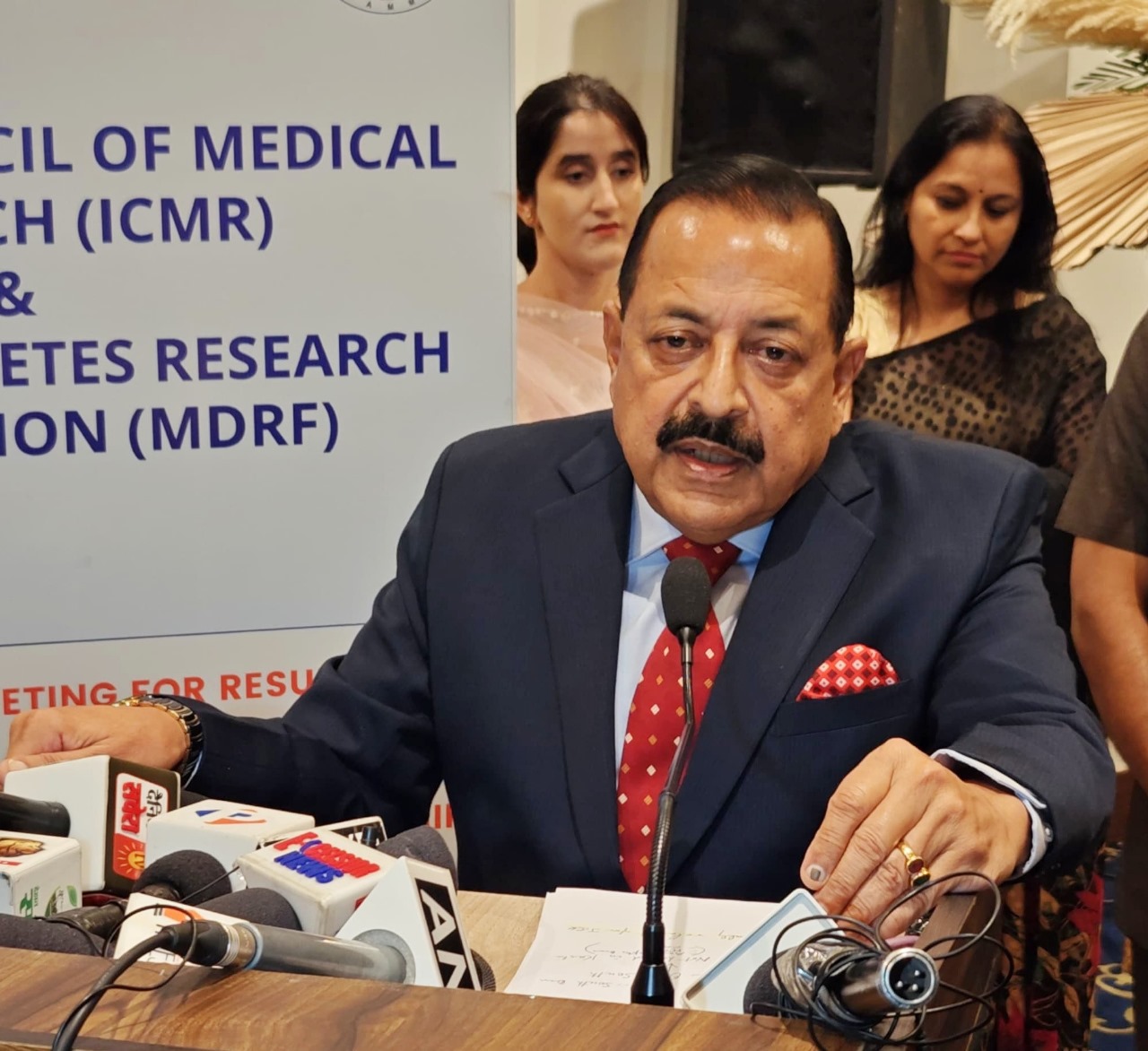Jammu: Union Minister Dr. Jitendra Singh, a nationally renowned diabetologist, unveiled the findings of the ‘ICMR-India Diabetes (INDIAB)’ study today, marking a significant step in assessing the prevalence of diabetes in India, including Jammu and Kashmir. The survey, the largest of its kind, revealed that 18.9% of the population in the Jammu region is affected by diabetes, with higher rates in urban areas (26.5%) compared to rural areas (14.5%), exceeding the national average.
Expressing concern over the rising incidence of diabetes, Dr. Jitendra Singh called on medical institutions, NGOs, and the media to increase public awareness about the disease to prevent and control it. He emphasized the importance of a multi-sectoral approach involving government, non-governmental agencies, and communities to curb the spread of diabetes and other non-communicable diseases (NCDs).
“This study offers a crucial opportunity for prevention and control of NCDs,” said Dr. Singh. “By engaging various sectors, we can slow down or stop the rising tide of diabetes and other metabolic diseases.”
The ICMR-India Diabetes (INDIAB) study, conducted nationwide, provides valuable insights into the prevalence of diabetes, prediabetes, and other metabolic NCDs. According to Dr. Singh, the study’s findings will help policymakers and health professionals develop targeted interventions for the prevention and management of these diseases, particularly in the Union Territory of Jammu and Kashmir.
The survey also revealed that 10.8% of the population in Jammu region is affected by prediabetes, underscoring the urgent need for early detection and intervention. Dr. Singh stressed the importance of preventing diabetes from passing from one generation to the next, with a particular focus on managing diabetes in pregnant women.
“It is our national responsibility to address this growing health challenge,” said Dr. Singh. “We must make all-out efforts to prevent the youth from falling prey to this preventable disease. Our youth are the architects of a developed India, and their health and well-being must be a top priority.”
The Union Minister highlighted the government’s efforts in setting up 1,50,000 Health and Wellness Centres across India, focusing on the prevention and control of NCDs such as diabetes, hypertension, and some forms of cancer. He credited Prime Minister Narendra Modi for bringing the concept of preventive healthcare to the forefront, particularly through the promotion of traditional medicine and yoga.
“Under Prime Minister Modi’s leadership, we have built a preventive healthcare ecosystem that was previously alien to India,” Dr. Singh noted. “His vision of opening 1.5 lakh wellness centres across the country has been pivotal in addressing the NCD crisis.”
Dr. Singh also emphasized the potential of Jammu and Kashmir’s vast, untapped Himalayan resources to contribute to India’s economic growth. He expressed optimism about the region’s role in India’s continued economic ascent, highlighting the recent growth that has propelled India into the top five economies in the world.
The ICMR-INDIAB study in Jammu surveyed 1,520 participants across urban and rural areas, providing crucial data on the region’s health. The study revealed high prevalence rates for hypertension (27.1%), generalized obesity (41.7%), and abdominal obesity (62.7%). Conducted by the Madras Diabetes Research Foundation in collaboration with ICMR and the Department of Health Research, the study offers critical insights that could shape the region’s healthcare policies moving forward.
With the alarming rise in diabetes and related conditions, Dr. Singh reiterated the importance of collaborative efforts to tackle these health challenges and ensure a healthier future for the region and the nation.





